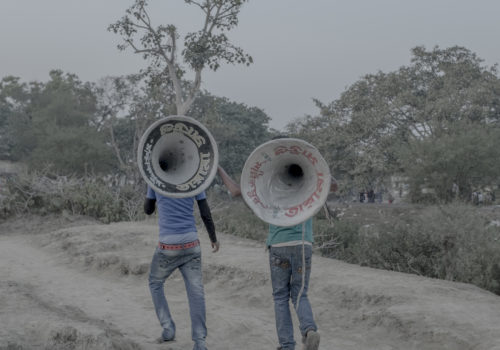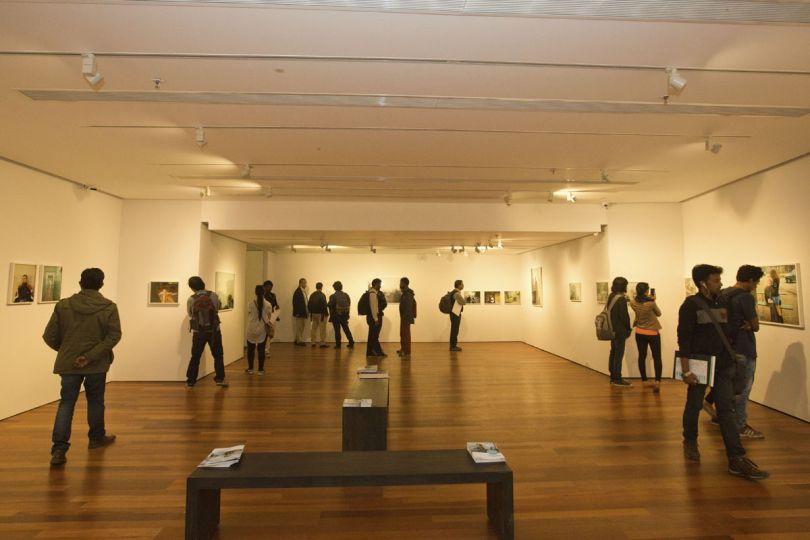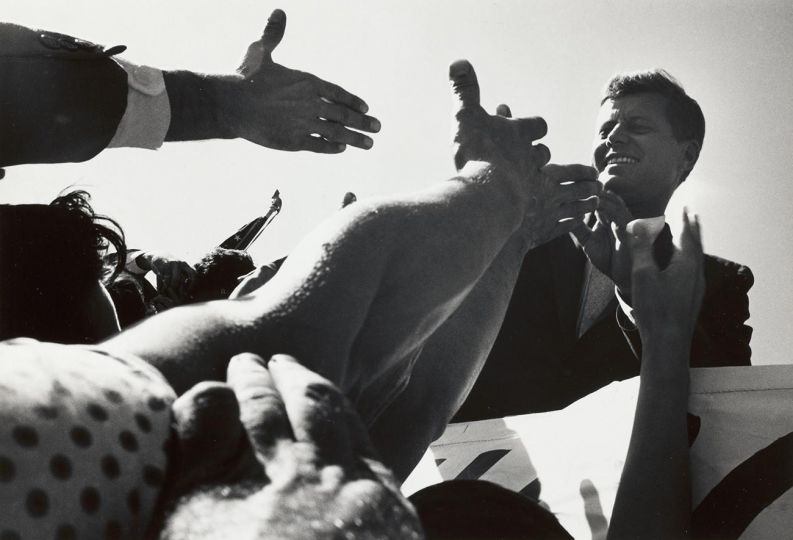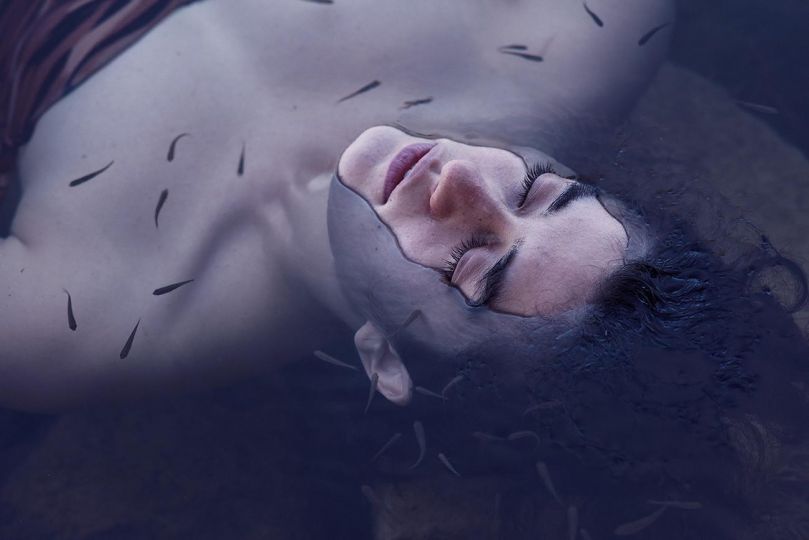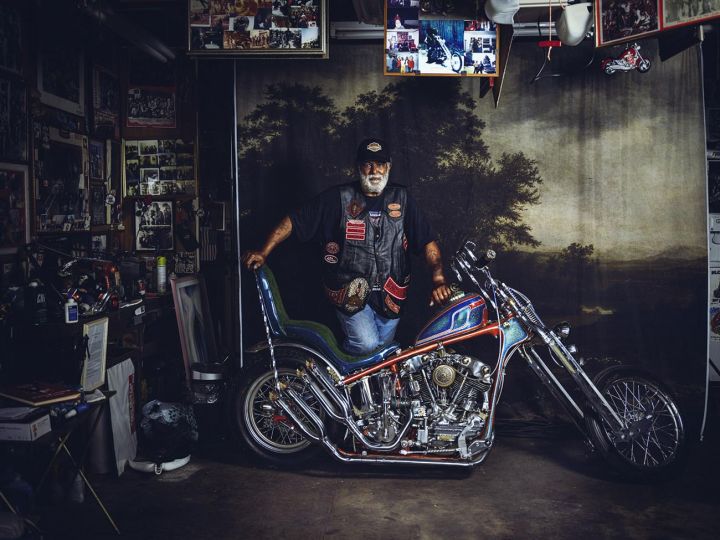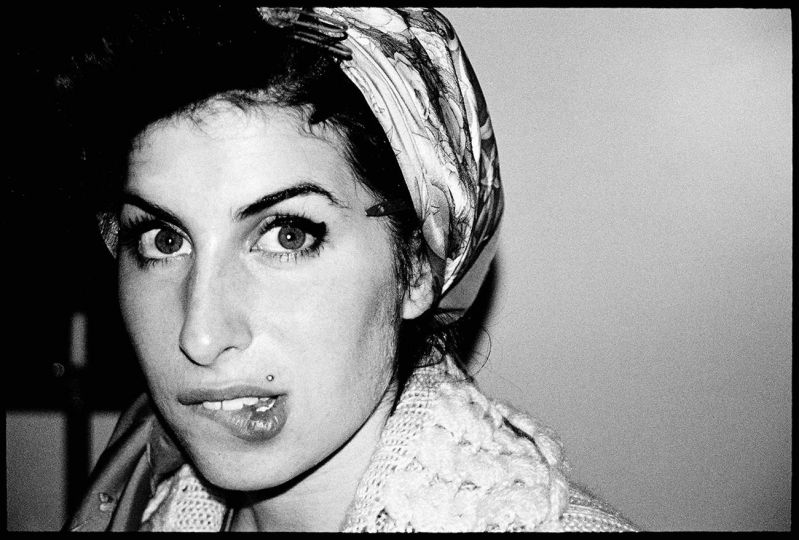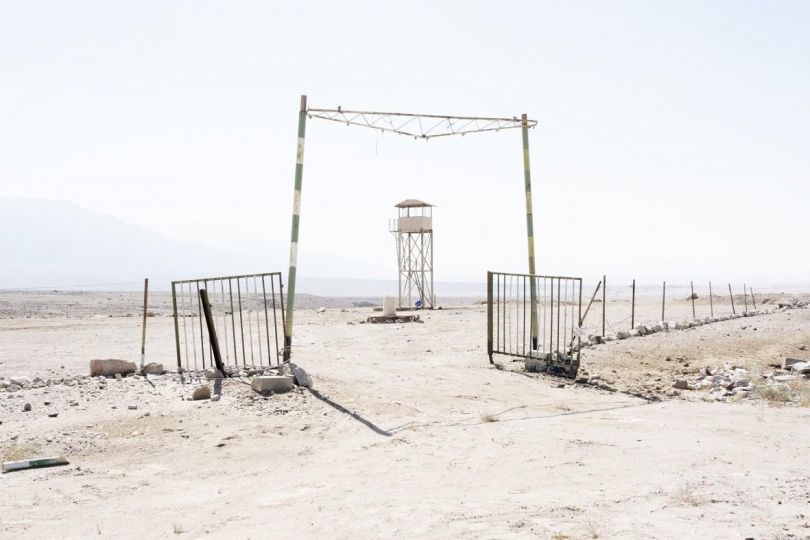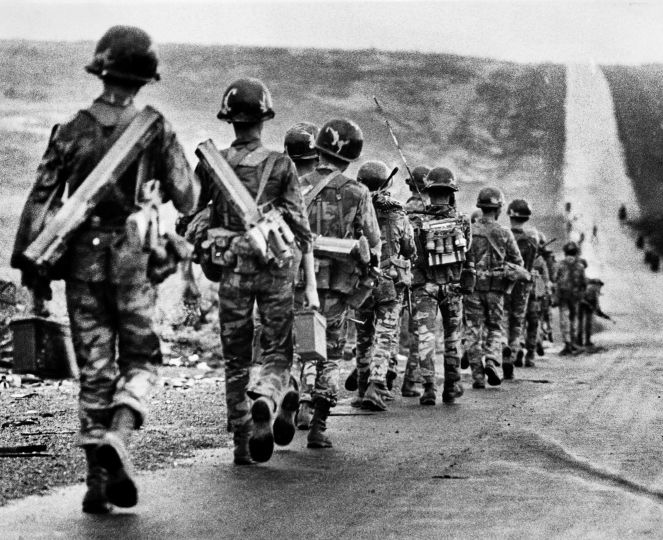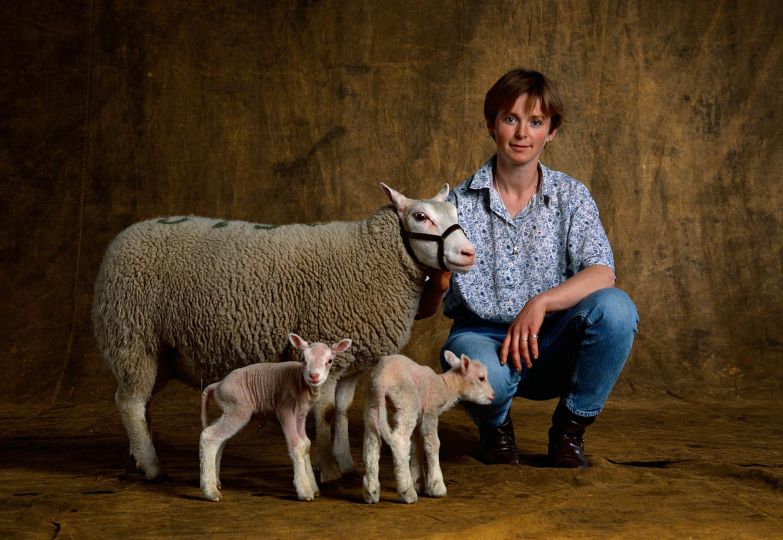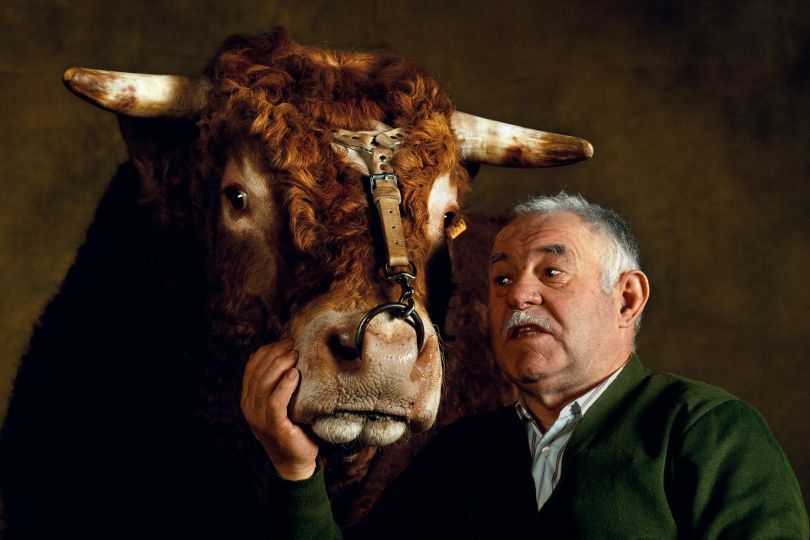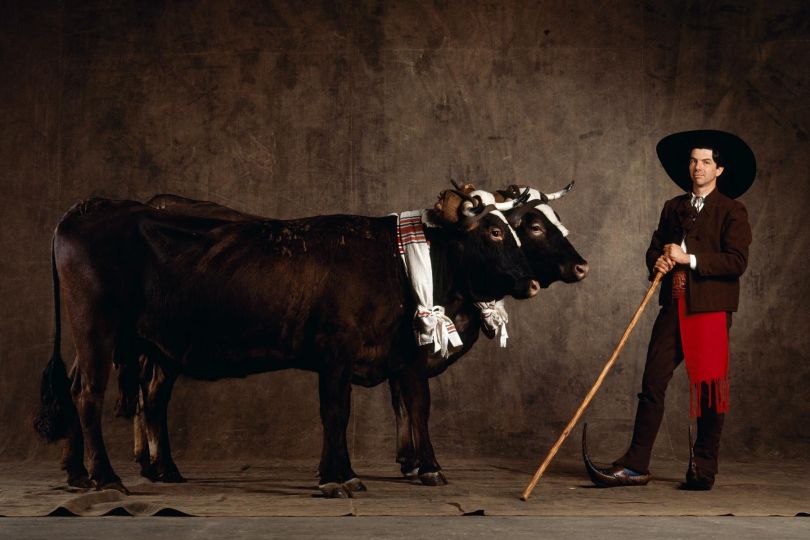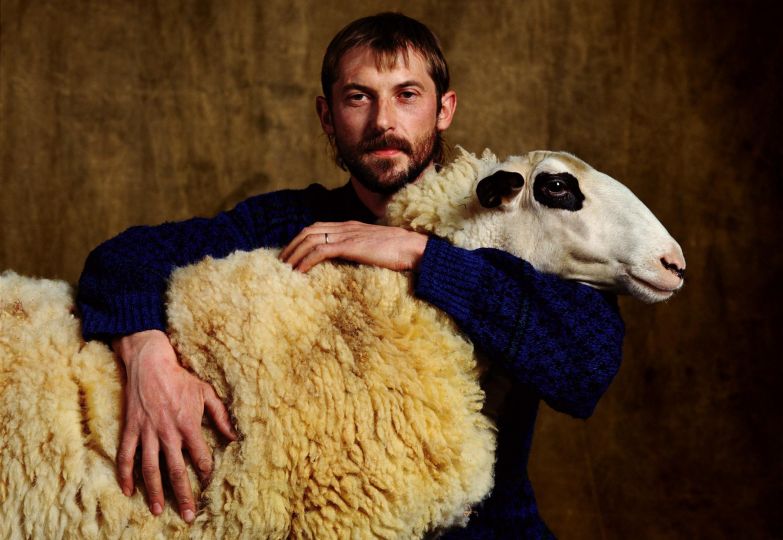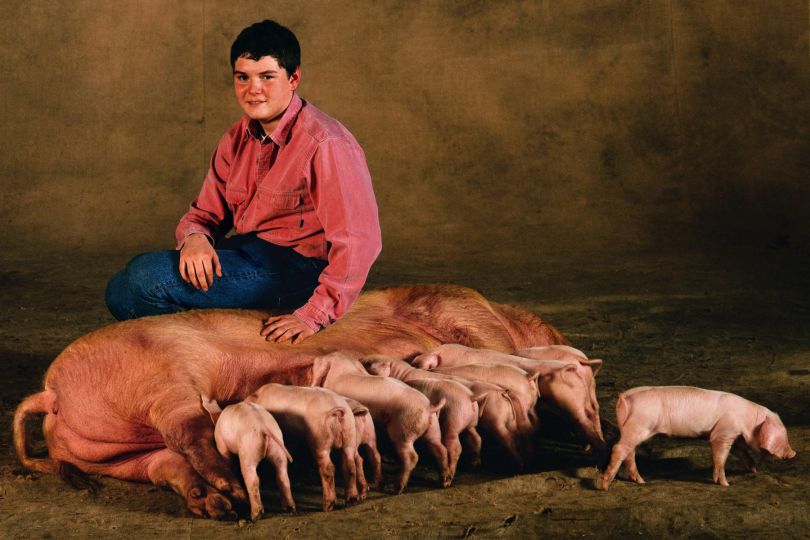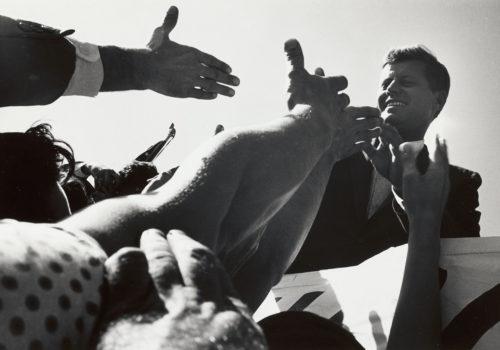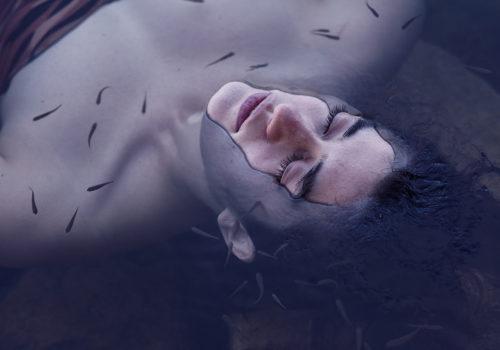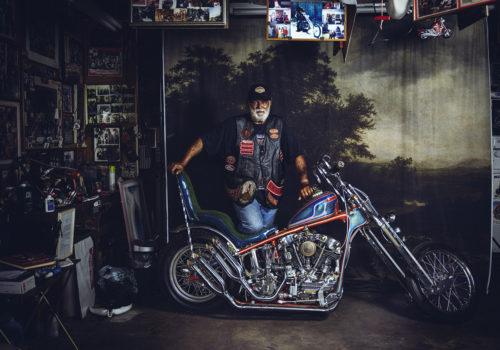Picnicking is far from a simple affair in eastern India. In a land where the fleeting months of December to February offer the only time to ‘enjoy’ the otherwise unbearable tropical sun, picnicking is a winter pastime that’s taken very, very seriously. This work, done between 2013 and 2015 takes a look at this phenomenon.
Buses and cooks are hired as groups of families, friends, neighbors and colleagues travel far to claim the perfect picnic spot, preferably around the innumerable rivers traversing the landscape, from the Ganges downstream to the Rupnarayan, Icchamati and myriad other tidal rivers close to the Sunderbans. Vats of freshly slaughtered chicken, sacks of vegetable and an arsenal of pots, pans and gas cylinders are lugged along, taking cooking en plein air to a whole new level.
Yet the most curious detail is, by and far, the extravagant loudspeakers that come with nearly every picnic group. Transported in their own hand drawn carts or mini-vans, separate generators are also brought along to pump up the electricity in the great outdoors. Songs from recent Bengali and Hindi blockbusters blare high above permissible decibels. Drunk on whiskey and rum, men of all ages brawl, dance their hearts out or pass out, as wives, girlfriends and children watch.
As the sun sets, the buses pull out, leaving stray dogs and cows to feast on carcasses, peels and leftovers amidst broken bottles and styrofoam plates. Fragile delicate environments are left behind damaged, irreversibly altered by indiscriminate pollution and plastic garbage littering.
While several families come for picnics, trade unions, transport unions and colleges also organize their annual winter day-outs. In essence, there is a lot going on all around. PIK-NIK tries to make sense of this social occurrence and shed light on this wintry zeitgeist.
The picnic we see in these images as a cultural practice opens up a curious vista of sensations. These visual frames are permeated with other sensory operations like hearing and smelling. The visual representations of gigantic loudspeakers and open-air-cooking work on a synesthetic level by evoking senses other than the visual and transforming the visual in the process. Apart from challenging the predominantly visual grammar of photography, this multi-senate quality also creates an immersive effect, allowing us to enter the experience as such.
This work attempts to capture the passage of time, not necessarily in a chronological manner but in bits and pieces from personal and subjective vantage points. The images of preparation, carousal and departure observe a festive and yet muted temporality as the series explores nuances of communal life in its discrete moments of peopled solitude. Faces staring out into the void from a carnivalesque crowd communicate the asymptote of solitude and company. Photography creates its own temporality on the body of its silence. This series reinforces this old but important truth about the medium.
The picnic experience also embodies a subtle class dynamic. The blank stare of the solitary cook counterpoints the semi-drunken bonding of men, loitering around. The dance of the younger ones and the static gaze of the middle-aged add to the spectrum of life- experience held together by these pictures. As we explore them further, they speak to a strongly gendered social experience. There is a stark note of gender segregation in these images as we keep encountering all-male or all-female gatherings.
Finally, apart from the environmental emphasis on waste as a remainder of picnicking, already pointed out, the series also foregrounds garbage as a dominant cultural reality in the so-called third world scenario. The trees, used as hooks for shirts and the fully clothed car are indicative of an Indian subaltern lifestyle. The intersection of land and water offers a perfect backdrop for the garbage that remains and the garbage that floats away on the bank and shoal of time. The series is open to this time of transition and yet transcends its clockwork as the megaphones disappear into the horizon of the setting sun.
Arko Datto, India
Will be shown as a part of “Bengal Divided”, a curated slideshow by Sarker Protick and Munem Wasif.
Chobi Mela IX International Festival of Photography in Bangladesh
February 3 to 16, 2017
Rd No. 8A
Dhaka 1209
Bangladesh

